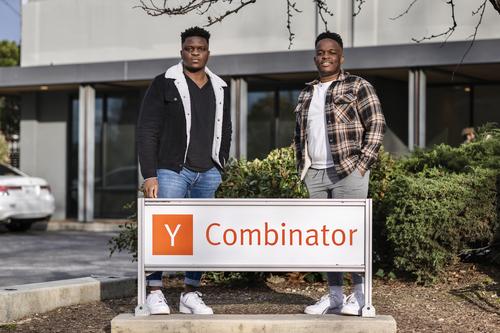Image Credit: Y Combinator
We always talk about how hard it is for Zimbabwean startups to get funding. The truth is it goes beyond funding, our startups have little support of any kind. Hence why it’s exciting to see a Zimbabwean startup accepted into Y Combinator, a prestigious American startup accelerator.
Okay, the startup in question, Ocular AI, is not just Zimbabwean but has both a Zimbabwean and a Zambian founder. So, technically a Zimbabwean/Zambian startup but we are pretty much the same tribe as the Zambians, only divided by a coloniser-drawn border.
The founders are Louis Murerwa, born in Zimbabwe, and Michael Moyo, our Zambian brother. The guys met at Dartmouth College in the USA where they both studied Computer Science. They went on to secure jobs at Big Tech firms, Louis at Google and Michael at Microsoft, among other gigs.
During their stints with Big Tech, they noticed a huge problem. Here is how Louis puts it,
At Google and Microsoft, it was very difficult to know what was happening, when, where and how it affected other teams.
Michael concurs, saying,
Having worked at Microsoft and Google, Louis and I experienced first-hand the complexities of navigating information access, data, and tool discovery across multiple SaaS tools both in the general workplace and engineering.
They are saying these huge companies have multiple Software-as-a-Service both in the general workplace and in engineering. The engineers have to navigate all those platforms to try and access information and it’s time consuming and confusing.
See, this is a problem most of us would not be familiar with, having never worked at companies like Google and Microsoft. For context, Google has 27,169 engineers on their payroll globally. That’s just engineers and you can imagine how making sure all those people have access to the data they need can be a challenge.
So, here is the problem explained further by the Ocular AI guys,
We’ve interviewed numerous employees and engineers at Appian, Uber, Pinecone, Brex, Coda, Microsoft, Google among others and learned that as companies grow it gets harder to:
1. Find what you need at work: Company knowledge lives in multiple, isolated Saas applications and employees spend over a quarter of their workday looking for information, documents, apps, and people they need to do work or get permissions.
2. Manage complex engineering tools: As engineering teams scale and adopt microservices, they onboard multiple tools for documentation, development, release, monitoring and alerting. * Tools (such as CircleCI, DataDog, New Relic, etc) all live in different places which makes it very difficult to have a unified view of your techstack.* * * Critical data, metrics, logs, and dashboards are all in isolated platforms, complicating discovery, correlation, multitool workflow coordination, and usage—especially during incidents. Siloed tooling and data introduces operational tax to the life of employees and engineers, slowing down productivity, development cycles, and incident management.
The guys decided that was a problem worth solving and founded Ocular AI to do just that.
Enter Ocular AI
“Ocular AI lets teams within organisations search, visualise, and perform critical cross tool actions all on one unified platform… Ocular AI brings infrastructure, tooling, data, services together and facilitates knowledge discovery and actions all on one platform.”
Or as Louis put it:
Ocular AI consolidates company’s SaaS applications, cloud infrastructure, tools, dashboards, and data into one platform, facilitating streamlined, generative AI-driven knowledge discovery, visibility, and actions for people in the workplace and engineers.
That’s the solution. Simple in theory but would be a huge deal for employees at huge companies.
Y Combinator saw the potential and accepted Michael and Louis with Ocular AI into their Winter 2024 Batch.
Among other things, Y Combinator provides the following to startups selected to the Winter School batch:
- Funding: Startups receive seed funding ($500,000) from Y Combinator.
- Intensive support: Dedicated group partners mentor and advise startups throughout the program.
- Networking: Access to a network of investors, alumni, and industry experts.
You can read more about Y Combinator’s goal with startups here.
All the best to these young men.
I know you’re going to mention it, Ocular is not really a Zimbabwean or Zambian startup, it just has African founders. These young men grew up here and only left when they got accepted into Dartmouth. However, they founded Ocular whilst based and working in the USA.
It was the same story with Jamboo which has raised over US$1 million to date. It has Zimbabwean founders but is a UK company. So, that surely helped in their ability to get attention and raise funds.
Regardless, it’s still exciting stuff.

One response
It will be good for GoZ to support startups or else you will lose them to those with foresight. Well done. Onwards and Upwards…..